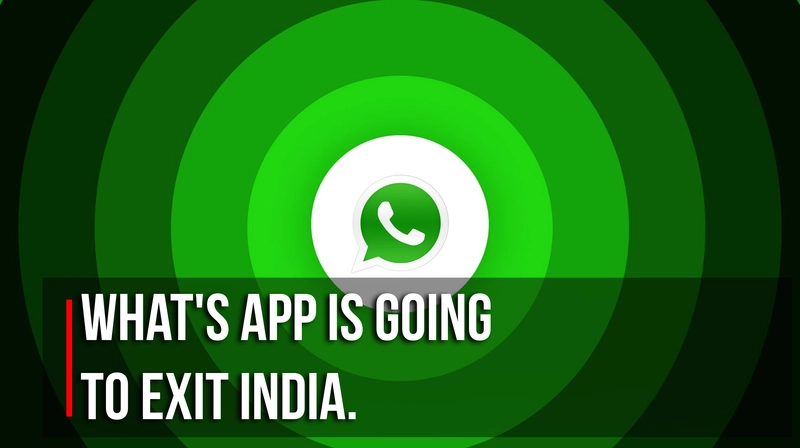Advertisement
In recent developments, WhatsApp, one of the world's most popular messaging platforms, has issued a bold statement threatening to withdraw its services from India. The reason behind this drastic move lies in the clash between WhatsApp's commitment to user privacy and the regulatory requirements imposed by the Indian government.

All images are copyright to their respective owners.
Advertisement
Listen to the audio
At the heart of the matter is a new law introduced by the Indian government, compelling tech companies to share user data with governmental authorities. WhatsApp's parent company, Meta, has taken a firm stance against this law, arguing that it infringes upon user privacy rights and undermines the fundamental principle of end-to-end encryption, a feature integral to WhatsApp's platform.
During a court hearing on a petition filed by WhatsApp, Meta asserted that complying with the law would necessitate compromising the encryption of messages exchanged on the platform. This would essentially mean sacrificing the security and privacy assurances that millions of WhatsApp users rely on.
The crux of the issue lies in India's Information Technology rules of 2021, which mandate social media platforms to facilitate the tracking of conversations and the identification of the "first originator" of a message when requested by the government. This requirement poses a significant challenge to WhatsApp's end-to-end encryption policy, which ensures that messages, including multimedia content and calls, remain inaccessible to anyone except the sender and receiver.
End-to-end encryption is the backbone of WhatsApp's security framework, guaranteeing that communications are shielded from prying eyes, be it malicious actors or even WhatsApp itself. This robust security measure has cemented WhatsApp's reputation as the go-to messaging platform for individuals and businesses alike, fostering trust and confidence among its vast user base.
However, the Indian government argues that traceability of message origins is crucial for combating the spread of harmful content, such as fake news and hate speech, which can have profound societal implications. India, being one of WhatsApp's largest markets with over 900 million users, underscores the significance of finding a middle ground between privacy and security concerns and regulatory compliance.
As the standoff between WhatsApp and the Indian government unfolds, it raises pertinent questions about the delicate balance between privacy rights, national security, and regulatory oversight in the digital age. The outcome of this dispute could potentially have far-reaching implications not only for WhatsApp but also for the broader landscape of digital communication and data privacy in India.
With the next hearing scheduled for August 2024, all eyes are on how this contentious issue will be resolved and what implications it might have for the future of WhatsApp's presence in India and the global tech industry at large. As stakeholders on both sides of the debate continue to grapple with these complex issues, one thing remains clear: the importance of safeguarding both privacy and security in an increasingly interconnected world.
In recent developments, WhatsApp, one of the world's most popular messaging platforms, has issued a bold statement threatening to withdraw its services from India. The reason behind this drastic move lies in the clash between WhatsApp's commitment to user privacy and the regulatory requirements imposed by the Indian government.
For more blog posts, please visit our page daily luvnet.com.
Advertisement
Comments